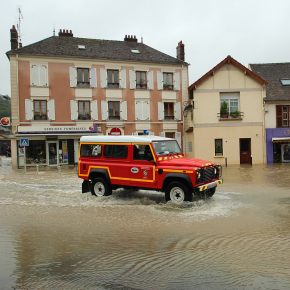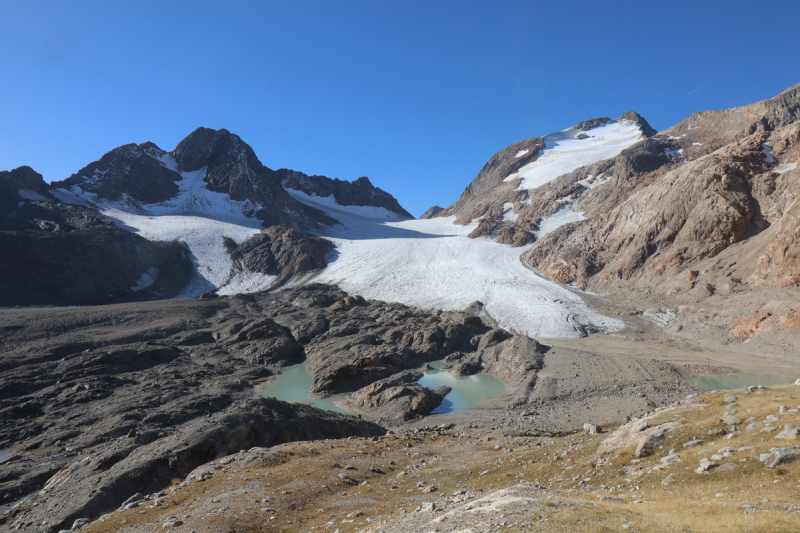Global warming is not a “con job.” It is a fact.
In the face of Donald Trump’s new denial of climate change, CNRS scientists have reacted by pointing to the facts and levers for action to halt this planetary crisis.
On 23 September 2025, during a speech to the United Nations General Assembly, U.S. President Donald Trump declared that climate change is “the biggest con job ever perpetrated against the world”. He also called the scientific community working in the field “stupid people” who made predictions that proved to be wrong.
It is appropriate here to reaffirm facts established beyond any reasonable doubt. Contrary to the affirmations of the U.S. president, climate change is not a “scam”, but rather a measured reality.
The existence of rapid global warming has been proven since the beginning of the Industrial Revolution, and since the 1970s has been marked by a sharp acceleration in greenhouse gas emissions. Temperature observation networks incontestably show global warming on the order of 1.2°C since the reference period of 1850-1900, doing so across almost all parts of the globe. The most recent estimate indicates that in 2024, warming due to human activity reached +1,36°C, an increase of approximately 0.27°C per decade over the last ten years (2015-2024). Today, it is certain that the current average global temperature is the highest in over 100,000 years.
At the same time, the effects of global warming on the occurrence of certain extreme events – heat waves, intense precipitation, sea level rise due to melting glaciers (that everyone can easily observe) – were predicted long ago, and are unfolding today as announced. In this context, the CNRS’s National Institute of Sciences of the Universe (INSU) has also made the unequivocal assessment of rapid, widespread, and harmful climate change that is accelerating.
This assessment emerged from its research on the mechanisms, still partially unknown, that underpin the climate machine, namely by establishing the largest climate models with its partners (whose outputs directly feed into the conclusions of the IPCC), and by certifying the national observation services that monitor the state of our environments, oceans, ice cover, atmosphere, and mountain slopes.
At the same time, it has also been established that this climate change can be limited. The thousands of scientific publications summarized in the most recent IPCC report notably show that the average global temperature can quickly be stabilised when net CO2 emissions are reduced to zero.
While today we remain far from such a reduction in emissions of CO2 and other greenhouse gases, this clear and undeniable scientific assessment means that it is not too late to act and limit climate change, with humanity still able to reverse course. For example, the IPCC has pointed out that “keeping warming to 1.5°C is still possible, but this requires deep, rapid, and sustained greenhouse gas emissions reductions”. In concrete terms, this involves cutting approximately 43% of global CO2 emissions by 2030 as compared to 2019, and achieving zero net emissions around 2050. Each tenth of a degree that is avoided counts, since “each additional increase in warming heightens risks for health, means of subsistence, food security, water supply, and economic development”. Denying science condemns our economies to more intense shocks, brings the loss of sustainable jobs and rising insecurity, reduces the feasibility of sustainable trajectories, and increases future costs for all societies.
Within this context, but also because adapting to the changes underway is already indispensable, we remain fully mobilized in meeting these challenges alongside all of society and its elected representatives—regional actors in particular—via the Observatories of the Sciences of the Universe.
Authors:
- Nicolas Arnaud, Director of the CNRS’s National Institute of Sciences of the Universe – CNRS Earth & Space
- Jean-François Doussin, CNRS Senior Researcher, Deputy Director of the CNRS’s National Institute of Sciences of the Universe – CNRS Earth & Space
- Gerhard Krinner, CNRS Senior Researcher, Scientific Advisor on Climate-Related Research to management at the CNRS’s National Institute of Sciences of the Universe – CNRS Earth & Space

